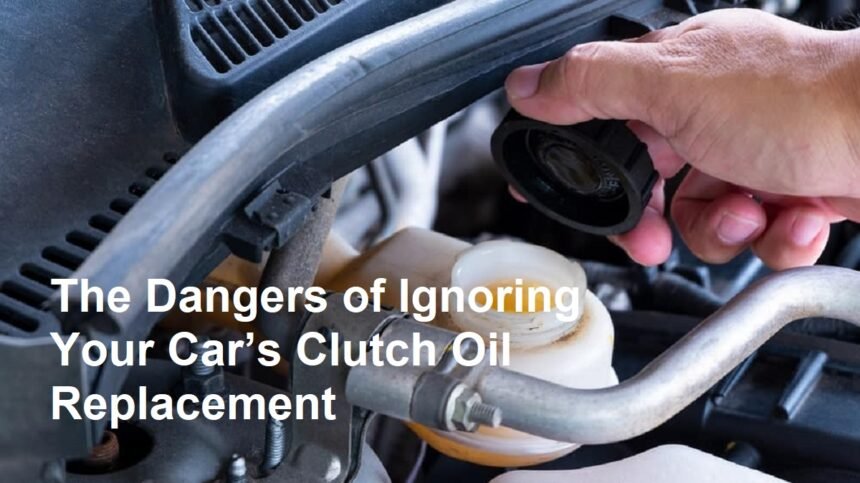Introduction
Maintaining your vehicle involves diligent care of many components, including the clutch system. One often overlooked but critical element is the hydraulic clutch oil (or clutch fluid). Just like engine oil, clutch oil needs regular replacement to ensure optimal performance and longevity. Neglecting this maintenance can lead to serious issues that compromise both safety and the lifespan of your clutch system.
In this article, we will explore what happens if you fail to replace your car’s clutch oil regularly and the potential consequences that could arise from this negligence.
The Role of Clutch Oil in Your Vehicle
The clutch system in most cars operates via hydraulic pressure transmitted through the clutch oil. When you press the clutch pedal, the hydraulic fluid transfers force to disengage the clutch, allowing you to shift gears smoothly. Over time, this fluid can become contaminated with dirt, moisture, and debris or degrade due to exposure to heat and stress.
Regular replacement of clutch oil ensures that the hydraulic system stays clean, free of air bubbles, and capable of transmitting force efficiently. It also helps prevent corrosion and damage to the hydraulic components.
Dangers of Neglecting Routine Clutch Oil Replacement
1. Reduced Clutch Responsiveness and Performance
One of the first signs of neglecting clutch oil maintenance is a decline in clutch responsiveness. Old or contaminated fluid can cause a spongy or soft pedal feel, making it harder to engage or disengage the clutch smoothly. You might notice increased pedal travel or uneven gear shifting, which diminishes driving comfort and can lead to missed gear changes or gear grinding.
2. Increased Wear and Damage to Clutch Components
Contaminated or degraded clutch fluid can lead to increased wear of the clutch master and slave cylinders, as well as the hydraulic lines. Moisture and dirt particles in the fluid accelerate corrosion inside these components, eventually causing leaks or failure. Over time, this wear can lead to costly repairs or even complete clutch replacement.
3. Hydraulic System Failures
Clutch oil that is not replaced regularly may develop air bubbles or become viscous, hampering the hydraulic pressure transmission. This can cause the clutch to slip, especially under load or during acceleration, or lead to difficulty in disengaging the clutch fully. In severe cases, the hydraulic system may fail, rendering the clutch inoperative altogether.
4. Potential for Sudden Breakdown
Neglecting routine maintenance increases the risk of sudden clutch failure while driving. The hydraulic system may suddenly lose pressure as seals or cylinders wear out, leaving you stranded and potentially causing accidents or damage if the clutch system fails unexpectedly.
5. Increased Repair and Replacement Costs
Ignoring the importance of regular clutch oil change ultimately leads to higher repair costs. Repairing a hydraulic leak, replacing worn cylinders, or even replacing the entire clutch assembly is significantly more expensive than simple fluid changes performed periodically.
Preventive Measures and Best Practices
To avoid these consequences, statement guidelines recommend replacing your clutch fluid every 2 to 3 years, or according to the manufacturer’s specific schedule. Always use the recommended type of fluid, and have the hydraulic system bled and checked by professionals to ensure no air pockets or leaks are present.
Regular inspections of the clutch pedal feel, along with checking for fluid leaks underneath the vehicle, can serve as early indicators that your clutch oil needs attention.
Conclusion
Failing to replace your car’s clutch oil regularly can lead to a cascade of issues—from poor performance and increased wear to complete hydraulic failure. Routine maintenance not only keeps your clutch system functioning smoothly but also saves you significant costs in repairs and replacements over time.
If you want to ensure safe, efficient driving and prolong the lifespan of your vehicle’s clutch, make a habit of checking and replacing the clutch oil as per your vehicle’s maintenance schedule. Prevention is always better than cure, especially when it comes to your car’s vital components.












